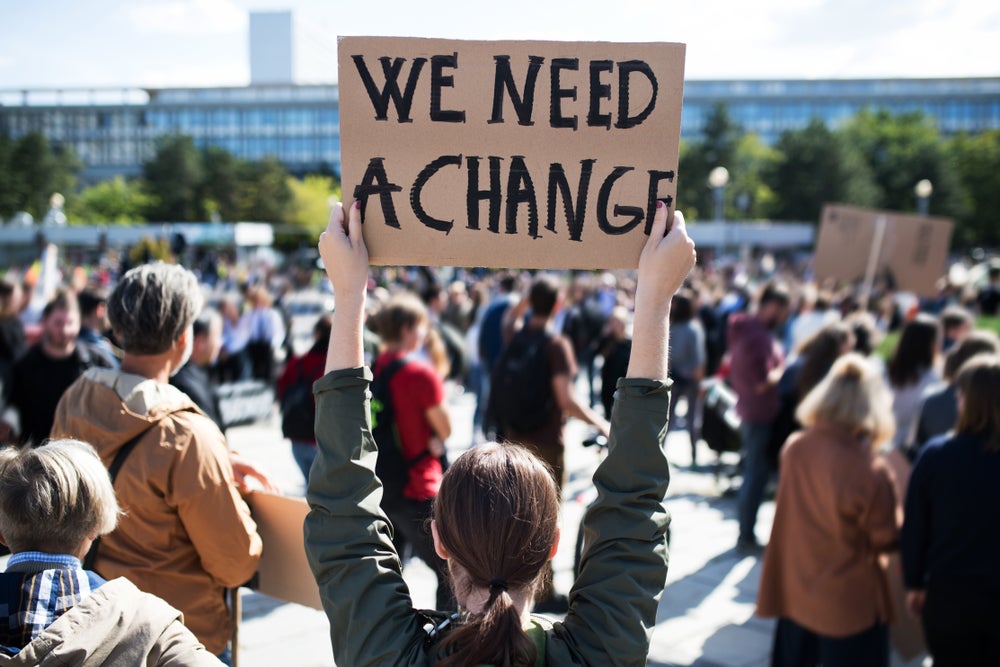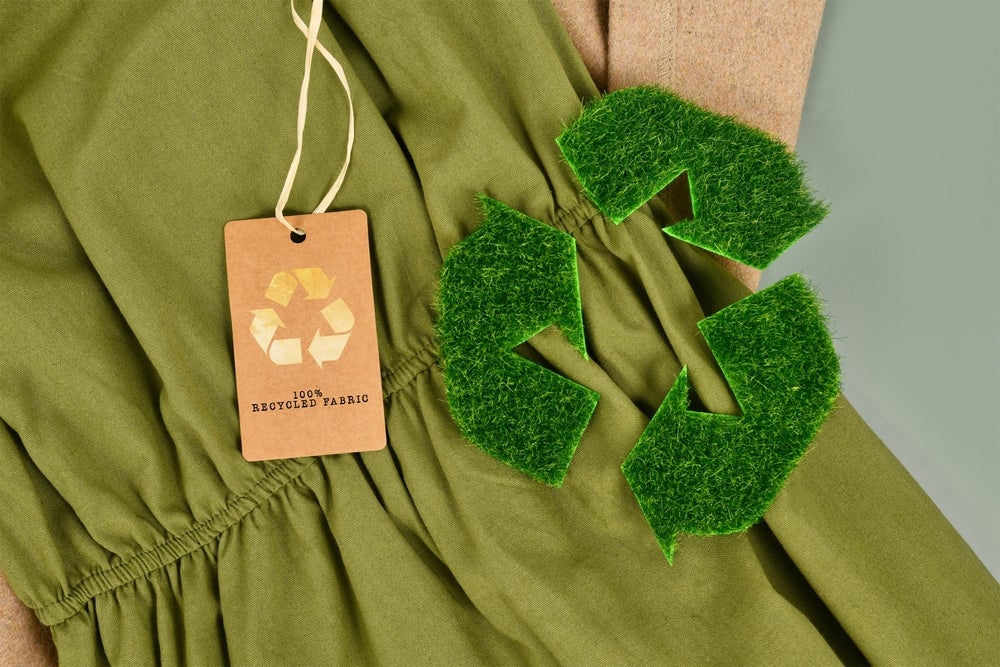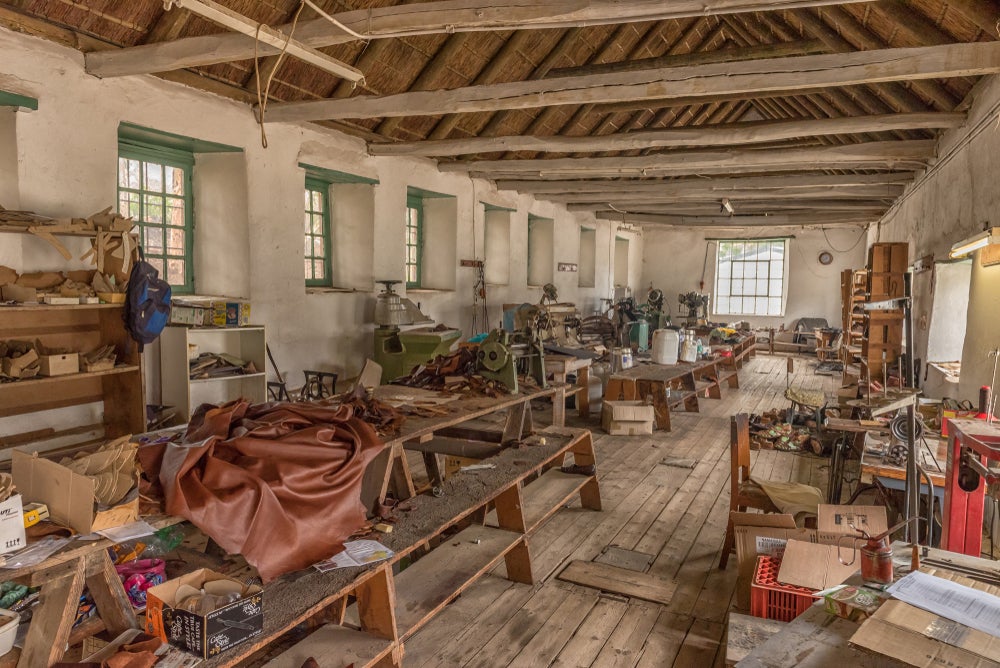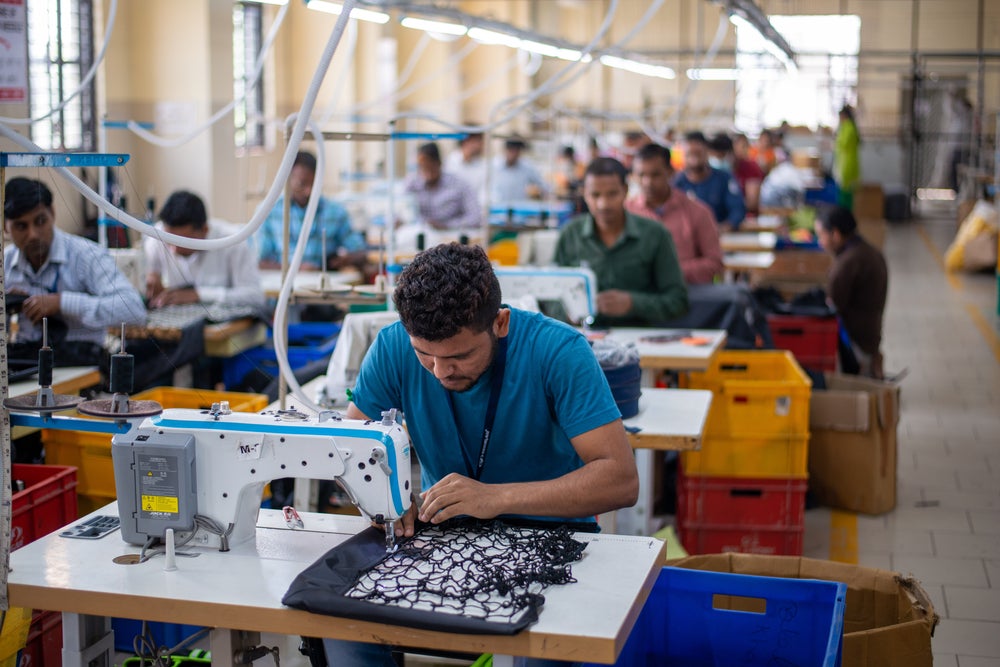The report titled '2024 ITUC Global Rights Index' claims policymakers and business leaders globally are actively restricting workers’ rights to collectively demand fairer wages and legally exercise their right to strike.
The International Trade Union Confederation (ITUC), who has conducted the report for 11 years, says democracy currently hangs in the balance as right-wing authoritarians are circling some of the world's general elections and are promoting an anti-worker agenda.
The report rates countries for workers on a scale of 1 to 5+ based on how much respect is given to workers' rights.
It found that almost nine out of 10 countries worldwide violated the right to strike, while eight in 10 countries denied workers the right to bargain collectively for better terms and conditions during it's measured period of April 2023 and March 2024.
"In a deeply worrying development this year, 49% of countries arbitrarily arrested or detained trade union members, up from 46% in 2023, while more than four in 10 countries denied or constrained freedom of speech or assembly," the report reads.
The ITUC says it has launched a For Democracy campaign in support of the rights and freedoms that all individuals should enjoy without fear of persecution or oppression.
All of the countries listed in the report are rated from 1 to 5+ depending on
their compliance with collective labour rights with 1 being the best rating and 5+ being the worst. The report explains that the level of economic development, size or location of the country is not taken into account given that fundamental rights are universal and workers in all parts of the world must have access to them. A high-rated cluster means that workers in the country have no right to their collective voice due to government failure to guarantee rights.
Eight apparel sourcing majors accused of not protecting workers
The report's list of 10 of the worst countries for working people in 2024 includes seven that are well-known for being exporters to the global garment industry:
- Myanmar - 5+ rating (no guarantee of rights due to breakdown of law)
- Bangladesh - 5 rating (no guarantee of rights)
- Türkiye - 5 rating (no guarantee of rights)
- Guatemala - 5 rating (no guarantee of rights)
- Egypt - 5 rating (no guarantee of rights)
- Philippines - 5 rating (no guarantee of rights)
- Tunisia - 5 rating (no guarantee of rights)
The other three countries featured in the top 10 list are not as well-known for their garment making and export abilities and include:
- Ecuador - 5 rating (no guarantee of rights)
- Belarus - 5 rating (no guarantee of rights)
- Eswatini - 5 rating (no guarantee of rights)
Myanmar accused of imprisoning union leader on terrorism charges for seven years
Myanmar has historically been a key player on the global stage for apparel sourcing but many fashion brands have exited the country following the military coup that took place in 2021.
The ongoing military coup contributed to the report giving the country a rating of 5+, which it defines as being no guarantee of rights due to a breakdown of the law.
The report claims that working people in Myanmar, including garment workers face arbitrary arrests and detentions, violent oppression of strike action and near-abolition of freedom of association.
It states that more than 300 union members and activists have been arrested since 2021 and highlights that Thet Hnin Aung, general secretary of Myanmar Industry Crafts and Services Trade Union Federation (MICS-TUsF) was arrested by the military authorities in June 2021 and sentenced to two years' imprisonment with hard labour and a fine.
The report adds that he was released on 26 June 2023 only to be re-arrested. He was then abducted and held incommunicado by the military for five months.
In November 2023, he was sentenced without legal representation to seven years' imprisonment with hard labour on terrorism charges.
Smart Myanmar and the Myanmar Centre for Responsible Business (MCRB) declined to comment on this occasion.
Bangladesh criticised for handling of wage protests
Bangladesh is the second-largest garment exporter worldwide, but the report gave the country a rating of 5, which is defined as there being no guarantee of rights and it claims working people in Bangladesh, including garment workers face state repression, violence and anti-union policies.
The report highlights that in 2023 several garment workers were killed by police during protests over raising the minimum wage and a union leader was murdered.
It also alleges that strikes were met with brutality by the police and attempts to form unions for the sector's 4.5m were obstructed by a registration process that saw 50% of applications rejected.
The Bangladesh Garment Manufacturers and Exporters Association (BGMEA) had not responded to Just Style's request for comment at the time of going to press.
Türkiye accused of union busting
In 2022, Türkiye was ranked the fourth largest exporter of textiles worldwide, accounting for over four percent of all exports, however the report also gave the country a 5 rating, which equates to an alleged no guarantee of rights for its workers.
The report alleges working people in Türkiye face suppression of civil liberties, union busting, baseless prosecutions of unionists and threats of violence.
It suggests employers continue to engage in union busting by methodically dismissing workers who attempt to unionise. It adds: "In a climate of fear and under the constant threat of retaliation, workers struggled to unite and form unions".
The Istanbul Apparel Exporters' Association (IHKIB) had not responded to Just Style's request for comment at the time of going to press, however, the organisation has previously told Just Style that the country's garment industry prides itself on the way it goes above and beyond to look after its workers. This ranges from providing them with free transport to get to the factory to a three or even four-course meal every lunchtime.
Guatemala urged to improve treatment of workers
Guatemala is a promising apparel sourcing major for the US as it sits within the Dominican Republic-Central America (CAFTA-DR) free trade agreement and is situated in a prime position for nearshoring.
However, the report claims Guatemala's workforce faces an atmosphere of fear and intimidation, murder and death threats and union busting.
It received a rating of 5 for 2024 which equates to no guarantee of rights with the report accusing Guatemala of "long being plagued by endemic violence against workers".
The report reads: "Engaging in the most basic of trade union activities remained a matter of life and death and the government failed to provide protection to trade unionists or to investigate and prosecute anti-union crimes. Employers were free to engage in union-busting practices, such as summary dismissals."
The report's authors also describe a garment factory closing in March 2023 to deter union organising.
It explains workers at Industrial Hana, a garment factory operating as an Export Processing Zone (EPZ) company, formally established the trade union
Sindicato de Trabajadores y Trabajadoras de la Empresa Industrial Hana (SITRIHANA) and moved to have it registered.
The report continues: "A week later, brands in the Republic of Korea that outsourced to Industrial Hana hastily withdrew their production without any justification and, because of this, the employment contracts for 235 workers were suspended. This move was seen as an attempt to avoid collective bargaining and thereby allow companies to continue to exploit workers in nonunionised factories for low-cost production."
Central America–Dominican Republic Apparel and Textile Council (CECATEC-RD) had not responded to Just Style's request for comment at the time of going to press, however the organisation has previously told Just Style new investments and an integrated, traceable supply chain are key to the success of the apparel sector across the Central American region.
Egypt pushes anti-protest and union agenda
Investors see potential in Egypt's apparel and textile sector. In February it opened what is being dubbed the ‘world's largest’ textile factory thanks to over $38bn of investments, however the ITUC claims the country is seeing an increase in interference by the authorities in trade union affairs in 2024.
The report claims working people face state interference, obstruction to union registration and repressive policies since the dissolution of all independent unions in 2018.
ITUC says it is estimated that, since 2018, the number of independent trade unions in Egypt has decreased from 1,500 to only about 150. Plus, it suggests that at least 11 unionists were "arbitrarily imprisoned" for attempting to exercise their basic freedoms, including the right to strike.
The Egypt Apparel Export Council had not responded to Just Style's request for comment at the time of going to press.
Philippines workers face obstacles for trying to unionise
The Philippines’ garment exports market dropped by 17.4% year-on-year in 2023, to $705m, while yarn and fabric exports dropped by 14.6%, to $248m, but the country remains hopeful that a free trade agreements with the EU will be agreed.
The ITUC is keen to share the country's workers and unions have faced being blacklisted by the government as extremist and have faced violence, abductions and "arbitrary arrests."
The report explains that two prominent trade unionists were murdered in 2023 and the government has fostered a climate of fear and persecution with workers across many sectors facing obstacles when attempting to form trade unions.
The Philippines Department of Trade and Industry had not responded to Just Style's request for comment at the time of going to press.
Tunisia political turmoil takes toll on workers
From a worker point of view the ITUC has criticised the country for having 'no guarantee of rights' with the government restricting civil liberties and harassing and persecuting trade union leaders.
The report explains government authorities have adopted a decree that penalises the expression of dissent, protest or demand with a prison sentence of up to five years and a fine of $16,279. As a result, trade unionists are at risk of arrest and harsh sentencing.
The Tunisian Federation for Textiles and Garments (Fédération Tunisienne du Textile et de l’Habillement – FTTH) tells Just Style exclusively that as a representative of business leaders in the private textile and clothing industrial sector in Tunisia, it is keen to exercise its right of reply to rectify certain assertions contained in this report.
The FTTH says: "First, we are fully compliant with Tunisian labour law legislation, and our companies are regularly audited to rigorous international standards, and we are proud to have recently signed a three-year wage agreement (2024, 2025, 2026) with our trade union partners, demonstrating our commitment to the well-being and rights of our employees for years to come. We would like to emphasize that the textile and clothing industrial sector in Tunisia is recognized for its significant progress in terms of working conditions."
The organisation adds that it attaches paramount importance to health, hygiene and decent working conditions, as well as to the promotion of diversity and equity, both in terms of pay and in access to professional development opportunities.
"Indeed, we are committed to an ambitious CSR approach that includes skills development, continuous training, the promotion of pay equity and social inclusion through our training initiatives. We consider that the Tunisian private sector is organised to set up working conditions and standards equivalent to those of Europe," FTTH notes.
The organisation provides an example of its commitment to the wellbeing of its employees. It explained that it recently collaborated with associations and occupational health professionals to launch the "Pink October By FTTH" event, aimed at raising awareness and screening for breast cancer within its companies and this is set to become an annual initiative for the sector.
FTTH also shares that in addition to its commitments to employees, it is also deeply invested in the preservation of the environment and biodiversity: "We integrate sustainable practices into our processes to actively fight climate change. For example, we have initiatives in place to reduce our carbon footprint and promote clean technologies within our sector."















